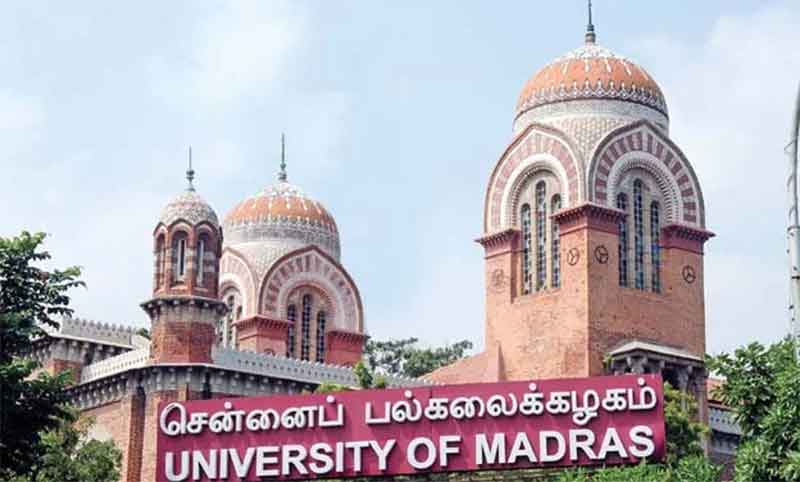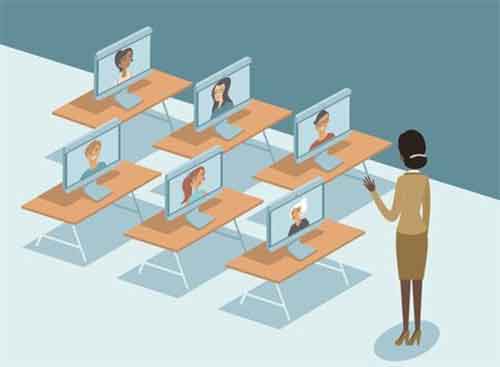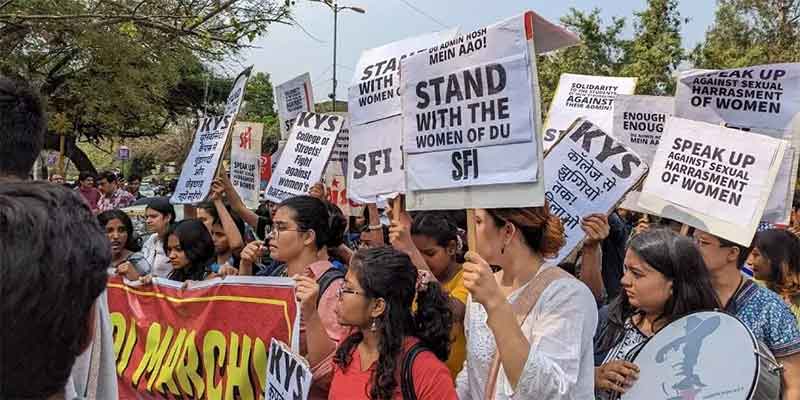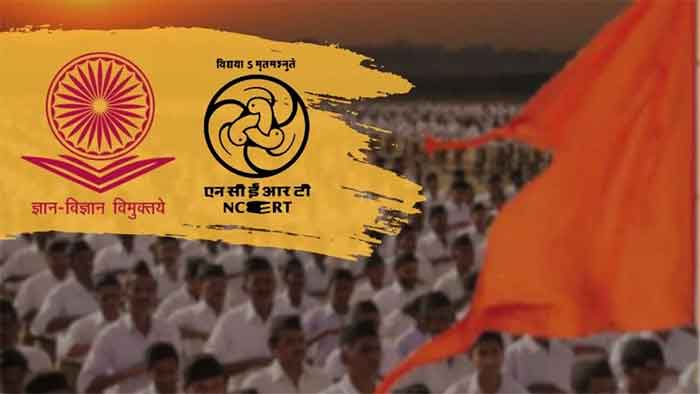
The coronavirus pandemic is seen as a ‘useful crisis’ in which to transform the economy. Yet the university system has not received any such ‘stimulus’ of fresh ways of thinking about education. While exams do play a role, they are being fetishized as the return of ‘normalcy’ even as many students have been left to themselves in the face of uncertain future. A good education is central to the middle-class value system and their perceptions of upward social mobility. However, the lockdown revealed an inflexible education system which exploits and panders these sentiments and avoids the difficult task of suitably changing syllabus, rationalizing workload etc. As teachers at the Delhi University we seek to bring to light the online learning experience of our students under conditions of lack of internet availability, lack of college environment and an uncertain academic schedule. Produced below are interviews with Akanksha, Taufiq and Vidhi* of their experiences of education amidst a pandemic.
News of students returning from Kota, Rajasthan in state sponsored buses and trains grabbed headlines as early as April 17 even as migrant workers were beginning to walk back home under brutalizing and fatal conditions. Many people questioned the preferential treatment being given to students over migrants, not without justification. However, as teachers we found that this news acted more to obscure the struggles, anxieties and disruptions faced by many more students who face new and equally unsettling difficulties today. For example, while everyday life and economic activity stand disrupted teachers and students have faced pressures to continue working to maintain ‘productivity.’ Even as students have been ferried across the country to ensure their safety the decision to conduct online examinations shows that they are expected to continue preparations even while normal classroom teaching stands suspended. This is based on the questionable belief that work-from-home provides a good-enough alternative to classroom teaching.
The recent circular of the Delhi University to conduct online exams for final year students from 1 July is based on such an assumption even though many students have complained of the ineffectivity of online teaching. One aspect which separates classroom from online teaching is the space of the classroom and college itself where students can meet fellow students and focus on lessons. As Akanksha G from Jammu and Kashmir conveys to us the lockdown has effectively cut her off from her classmates, friends, and teachers due to the extremely slow 2G internet speeds. ‘Work-from-home’ has meant that her daily routine was upturned as online classes were held outside of working hours. Akanksha is now anxious to return to Delhi as soon as the lockdown is lifted to resume preparations for the upcoming M.A entrance and Civil Services Examination. Akanksha’s anxiety is not misplaced. Long periods of lockdown have badly disrupted the academic and exam schedule. She had earlier hoped to have completed her bachelor’s examinations by June and then begin her preparations for the Civil Services examinations. An inability to cope can lead to the real danger of losing an academic year or dropping out of their chosen streams of education as universities insist on holding exams in the online mode despite the odds.
The precarity of pursuing an education is further heightened in Taufiq’s story of the lockdown. Taufiq is a bachelor’s student of Journalism at the Ambedkar College of the Delhi University. Taufiq is a resident of Mustafabad in North-East Delhi and the Ambedkar College is the only affiliated college for many students east of the Jamuna. He tells us that he is one of the few students in his extended neighborhood of Mustafabad and Karawal Nagar to gain admission into the college, and how many of his friends have had no other option but to join their family run business of auto spare parts, scrap dealership etc. Most of his friends in the neighborhood are 12th pass or graduates. His education pursuits saw a series of disruptions ever since the introduction of the Citizenship Amendment Act (CAA) in December 2019. Taufiq was a participant at the sit-in dharna against the CAA in Mustafabad and even helped in organizing the food, shelter etc. for the protestors. But the CAA protests were hit by the communal rioting which began on 23rd February and was especially violent in the Mustafabad area. The communal rioting was one of the worst the national capital had witnessed in decades leaving 53 people dead, hundreds displaced and disrupting the livelihoods of many, including Taufiq’s family. For Taufiq, this academic semester beginning from January has overlapped with the anti-CAA protests, communal rioting, and the Coronavirus lockdowns in quick succession. Continued precarity, lack of higher education opportunities and persistent unemployment threaten to push Taufiq away from his educational aspirations and are a source of much anxiety to him. For him and his friends an online education and its assurances of quality and productivity are not without their problems. While supporters of online teaching argue that internet availability in Delhi is wider than its critics allege because many students in the city own smartphones and can thus access the internet. However, a survey conducted by the All India Students’ Association (AISA) in Delhi University as many as 41.2% of students have said that they did not attend online classes at all because of poor internet connectivity.
But Taufiq’s story shows us another problematic aspect of online classes – teaching and learning are affective and emotional labor-intensive processes that require a conducive college atmosphere. Teaching requires constant face-to-face interaction to hold the students’ attention, repetition of concepts for clarification, regularity of classes etc. Similarly, college campus provides a space for meeting like-minded fellows, conversations, banter etc. for students. In an online class this affective and emotional labor is transferred from the teacher, fellow students, and the college space onto the student and his family. For Taufiq, who is a first-generation learner, this creates insidious new forms of isolation. Taufiq’s father runs a textiles business and a boutique shop. His elder brother Shafi* helps his father in running the business. Shafi is also a Bachelor’s student at the School of Open Learning (SOL) of Delhi University. Being in his final year Shafi must prepare for the upcoming online exams while dividing his time between family business and household chores during Ramadan. For both Taufiq and Shafi the only interaction with their friends is through WhatsApp for sharing books and reading materials. The anxiety to score well despite isolation from fellow classmates and lack of books can be understood if we look at the increasingly fewer opportunities for employment as a content writer which is Taufiq’s first choice. If, however, he does not manage to secure this employment he would seek out higher education as a researcher. While middle class values understand education as a means of upward social mobility for Taufiq it is imperative to secure admission in M.A. at a reputed college just to ensure he and his family are not slipping behind or dropping out of the education system. Therefore, Taufiq would prefer to take up employment to ‘support his family’ after his graduation and pursue an M.A. only if he does not get a job. Few other students we spoke to had to make this choice of working immediately after graduation and therefore the disruption caused by the lockdown is that much more in Taufiq’s life.
Akanksha and Taufiq’s precarity, lack of institutional support and dependence on self and family is a condition similar, but less desperate, to conditions facing migrant workers today. But the one comparable aspect between students’ and migrant workers’ experience has been the inadequacy of villages and towns to provide good education or employment forcing migration to the cities. Many students at Delhi University hail from the NCR, Ghaziabad, Bahadurgarh etc. and make daily trips to and from the campus. They do not prefer to live in paying guest accommodations in the city. Many other students from villages are still dependent on their families for economic and moral support. For such students the University is the only toehold they have in the city, and as the Coronavirus lockdown showed, they have no institutional support, friends or family for support in an emergency. Vidhi is a bachelor’s student at the Delhi University who had to leave for her home in Harsana Kalan, Sonepat before the lockdown. She left without her books and has since been unable to access reading material or classes online because of poor internet connectivity. Without a computer she had to rely on her phone for online classes, sometimes without audio. But Vidhi is as much motivated as any to use education to support and better her family’s conditions and become ‘independent’ herself. She says that she prefers to get a job quickly to make some money and put off pressures for her marriage. Her father, an electrical repair mechanic has been out of work for two months during the lockdown. But the crucial difference between Vidhi and students at Kota is that despite her self-driven efforts she has little support from the University, and the education system at large. Without such support Vidhi has taken it upon herself to follow a strict routine to continue her self-preparation for the upcoming M.A. and civil service entrances. “I begin by reading the newspapers, study my college subjects for two hours and then do my self-preparation for civils,” she says. However, the online exams Vidhi will soon sit for are more a means of signaling a return to normalcy than achieving her aspirations. The cost of such ‘normalcy’ may well force students from poor and socio-economically disadvantaged families to give up their aspirations, or worse be forced out of education. The psychological and educational disruptions in the life of many ‘faceless’ students is the silent pandemic which has not gained the visibility and attention it deserves.
* All names have been changed to protect the identity of respondents.
Imtiaz Quadri is a faculty at the Jesus and Mary College, Delhi University
SIGN UP FOR COUNTERCURRENTS DAILY NEWS LETTER
















































